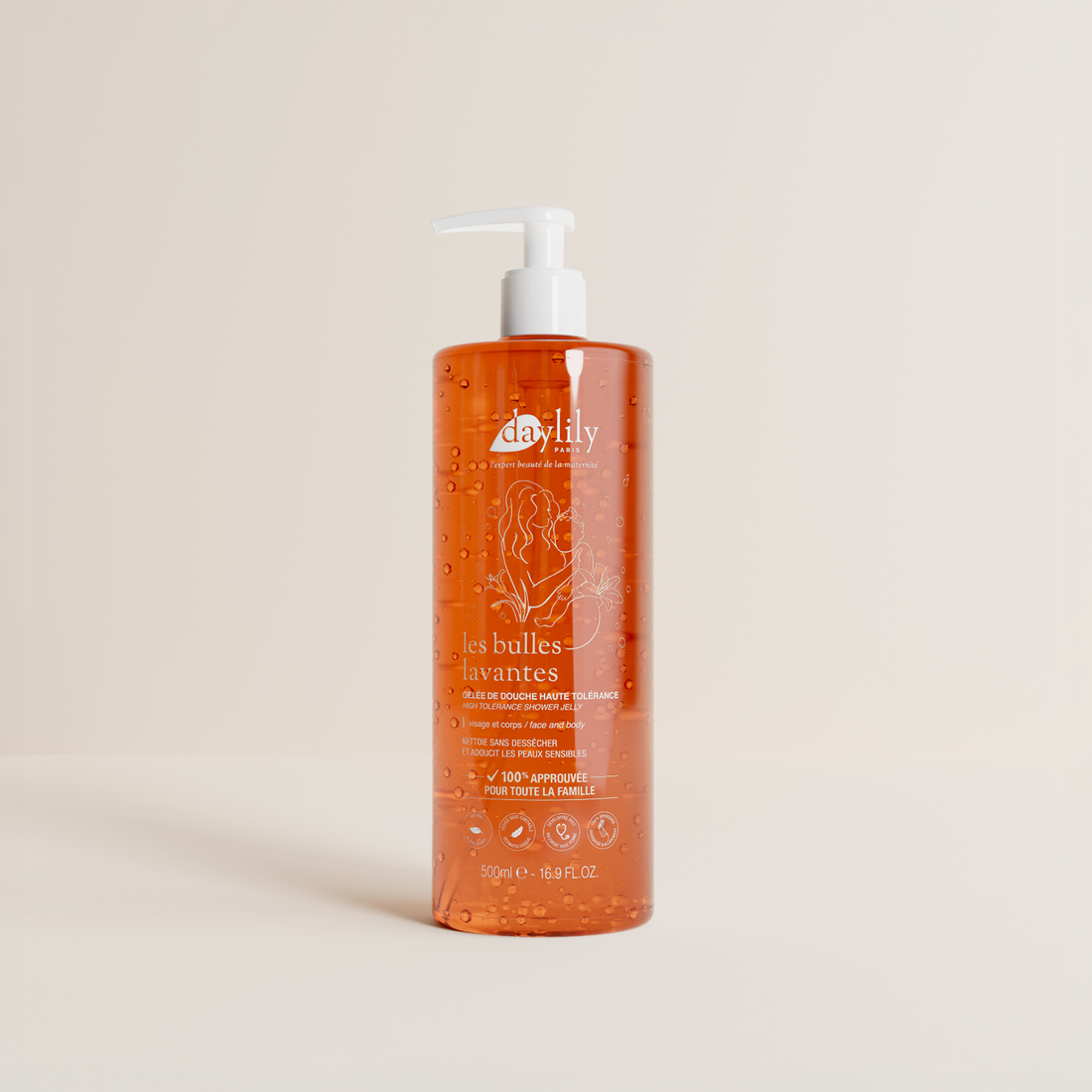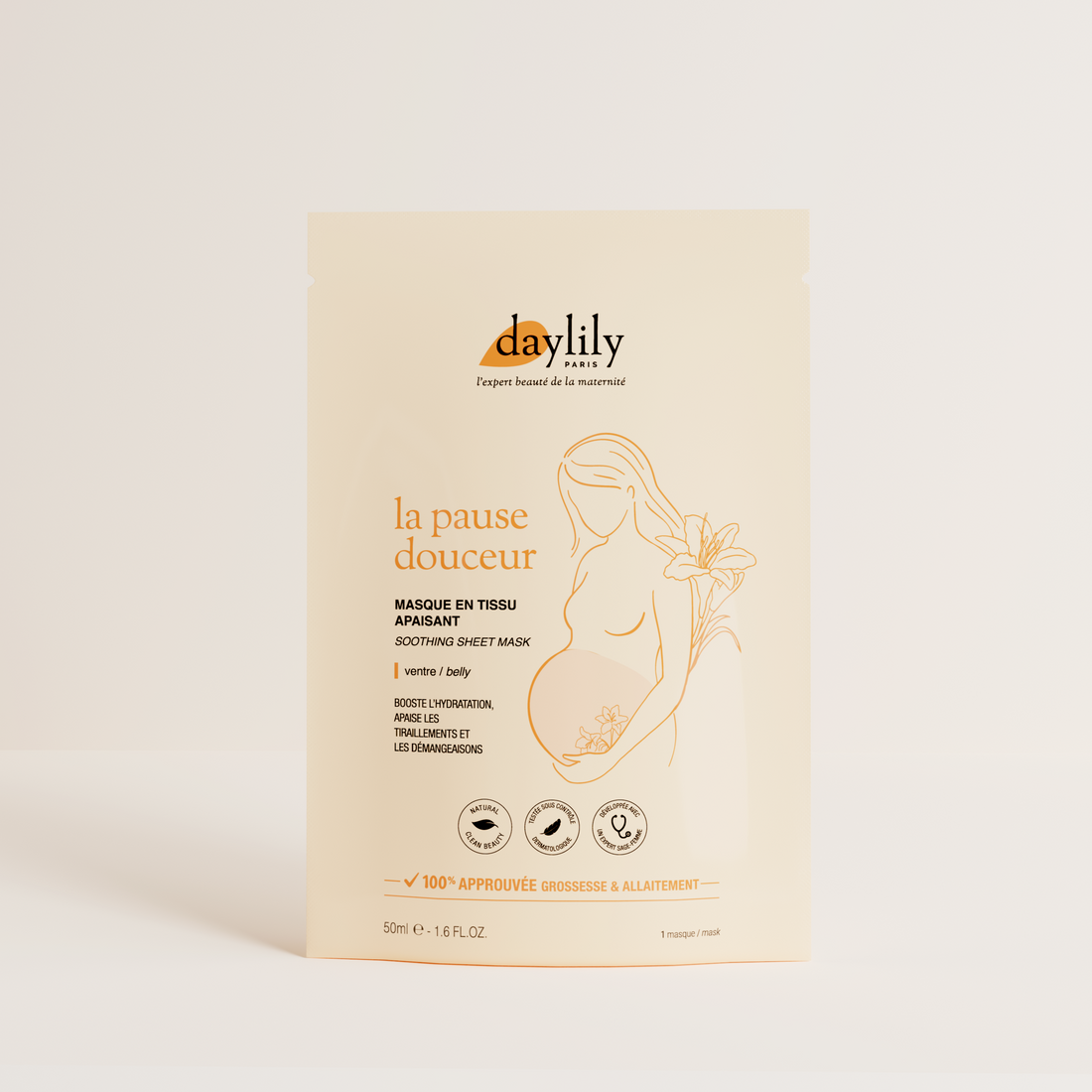Daylily Paris is a brand of clean, sensory and effective skincare products, made in France and 100% compatible with pregnancy and breastfeeding. We are also keen to share quality information for informed and uninhibited motherhood. 🧡
What is the Terrible Two?
The Terrible Two, or the 2-year-old crisis, is a pivotal time for young children. At this age, the child realizes that he is a being in his own right: he seeks to develop his autonomy and assert himself. He becomes aware of his power over his environment: if he says no, he sees that it makes you react.
Results: crises, anger and tantrums multiply, often over trifles, putting your nerves to the test.
Terrible Two can start a little before 2 years old, around 18 months, and will last from a few weeks to a few months depending on the child. Its intensity will also be more or less marked from one child to another.
How to recognize the Terrible Two and how does it manifest in practice? Here are some behaviors that may alert you:
- Your son or daughter very often says no, and becomes opposed when you ask him or suggest something;
- Your child has mood swings, going from happy to angry and back again within minutes, or changes his or her mind very quickly. For example, he asks you to play, but as soon as he settles down, he throws everything to the ground;
- His annoyance and frustrations do not go unnoticed: he expresses them by rolling on the ground, loudly shouting, crying or hitting, at any time of the day... whether you are at home or in the park;
- He gets along less well with other children: he refuses to lend his toys, he may jostle them or push them at the slightest disagreement.
Are you wondering how to deal with these unexpected crises? Here are some tips for managing these moments of crisis and getting through this period with maximum zenitude.

How to deal with the Terrible Two?
This phase, often confusing for a young mother, is not always easy to manage. Here are some ideas to help your child get through it:
- If you sense that baby is starting to get upset and a tantrum is looming, distract yourself. Invite him to play, to come and see something in the garden: it could well be that this little gentleman or this little miss, attracted by this prospect, will completely forget his budding anger.
- You can also make sure to give him the choice, but in a limited way, to give him the impression of deciding. If he refuses to wear the outfit you have chosen, ask him if he prefers the red t-shirt or the blue t-shirt: there is a good chance that this compromise will make everything okay.
- Stay calm : it's sometimes easier said than done when you're dealing with a lot of unjustified anger, but
He just can't control them, because he doesn't yet have the emotional maturity to contain himself. His repeated tantrums and tantrums are not there to annoy you and are not specifically directed at you. If you feel that the camel will soon overflow, take a deep breath, drink a large glass of water, remember that this is only a phase of its development, and repeat to yourself over and over: I'm a great mom. Because yes, you are!
- Don't give too much importance to these crises. Yes, you need to make sure that your son or daughter does not behave violently towards others or, for example, break objects or put themselves in danger. But sometimes the best attitude to adopt is not to pay too much attention to him or to isolate him so that he can calm down away from others. Your child will quickly understand that rolling on the ground does not generate the expected reaction and that this attitude is therefore pointless.
- Stay firm : you are the adult, and although you can be flexible from time to time, you must encourage him to respect all the family rules, such as going to bed or eating at a fixed time, take a shower at the set frequency...even if he's not happy about having to observe these habits.
- Speak to them in simple words : at two years old, some children do not have very developed language skills. You must simply make him understand that his anger is not acceptable. Avoid humor as much as possible (which he does not yet understand), notions of time or conditional sentences (if you do this, we will do that…) which are not within his reach. And don't forget to congratulate him when his behavior is appropriate: appropriate and positive attitudes must be emphasized.
- Try cuddling. Faced with a child who is ranting and screaming at the top of his lungs, you can try to take the opposite approach and hug him. Some children will be confused by this tenderness and calm down immediately. This will help your little one feel secure, and see that you are always there for them.
Managing the Terrible Two crisis and dealing with your child's strong emotions is not always easy for young parents. Keep in mind that this phase is normal for a child of this age, and try to be calm and understanding. The Terrible Two period will soon be nothing more than a bad memory, and you will be able to enjoy a fulfilling family life, without crises!

















